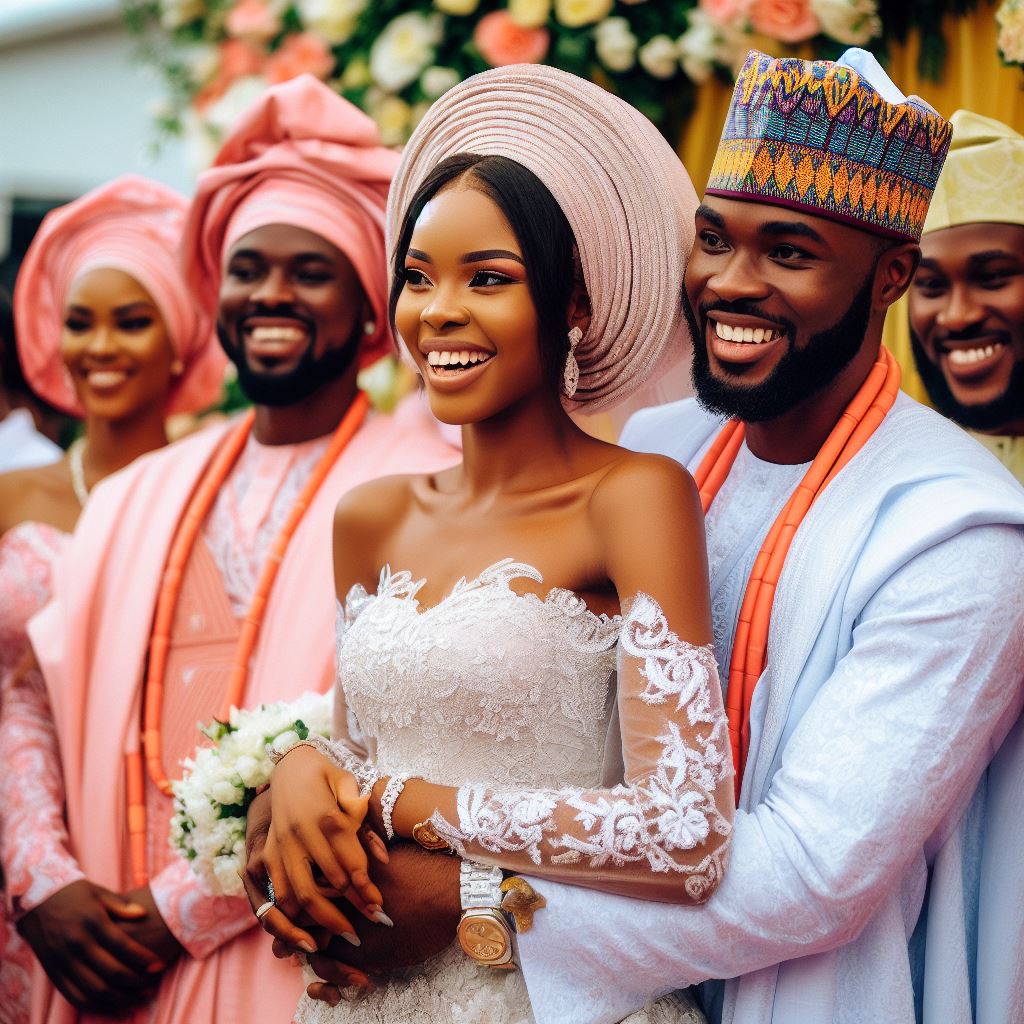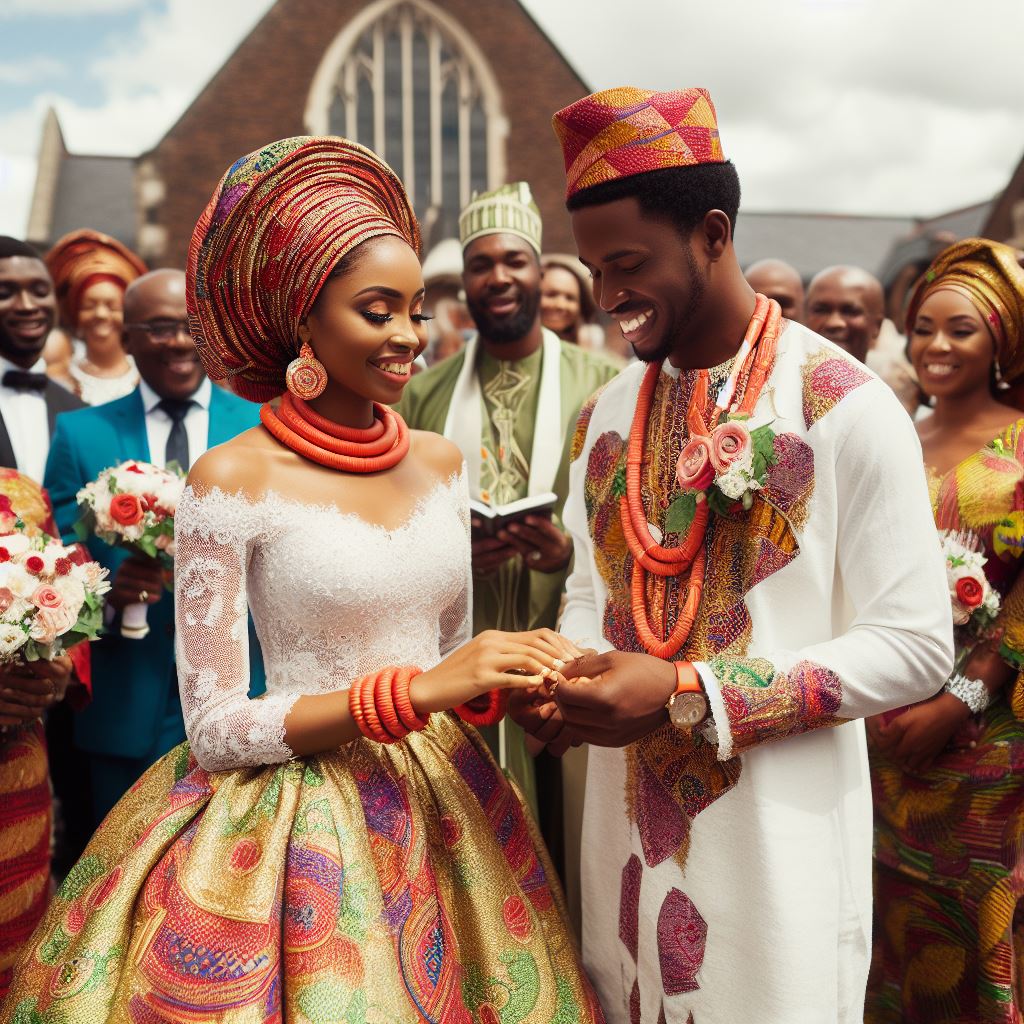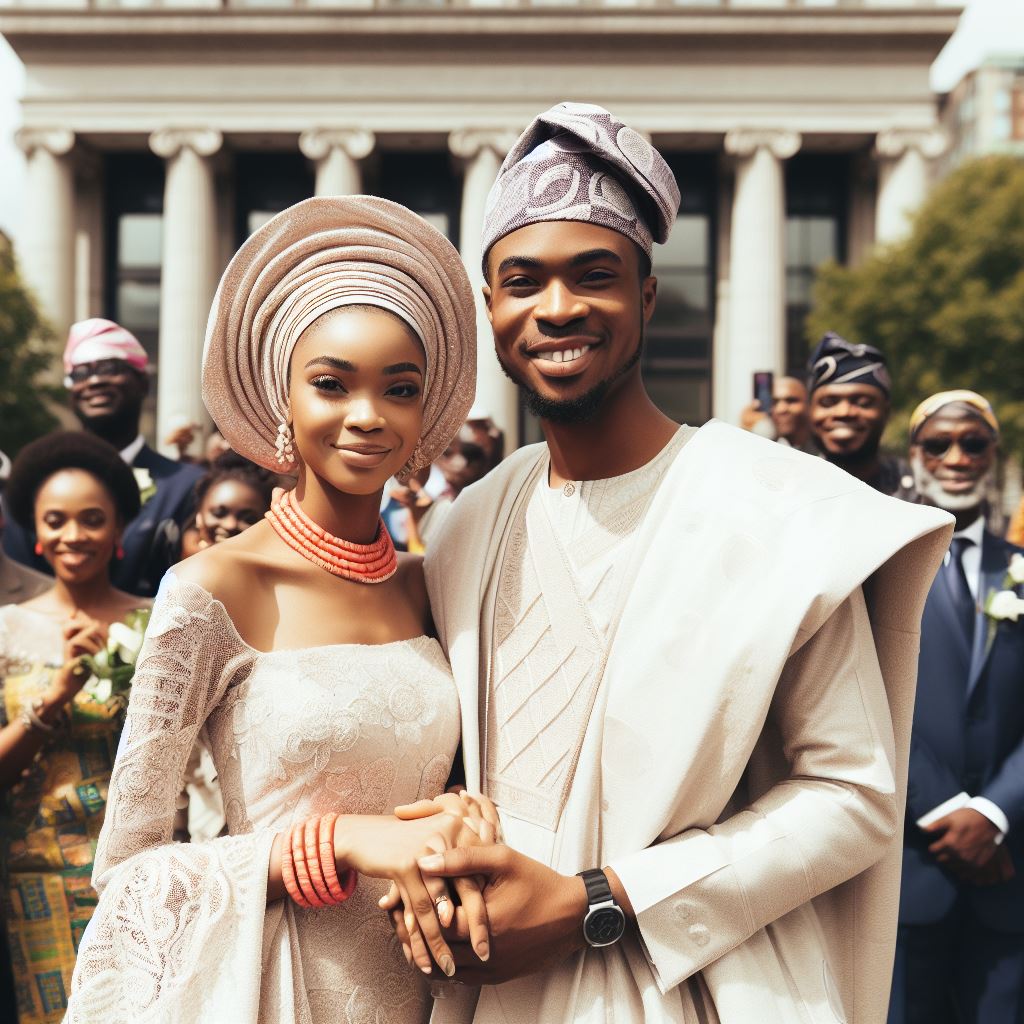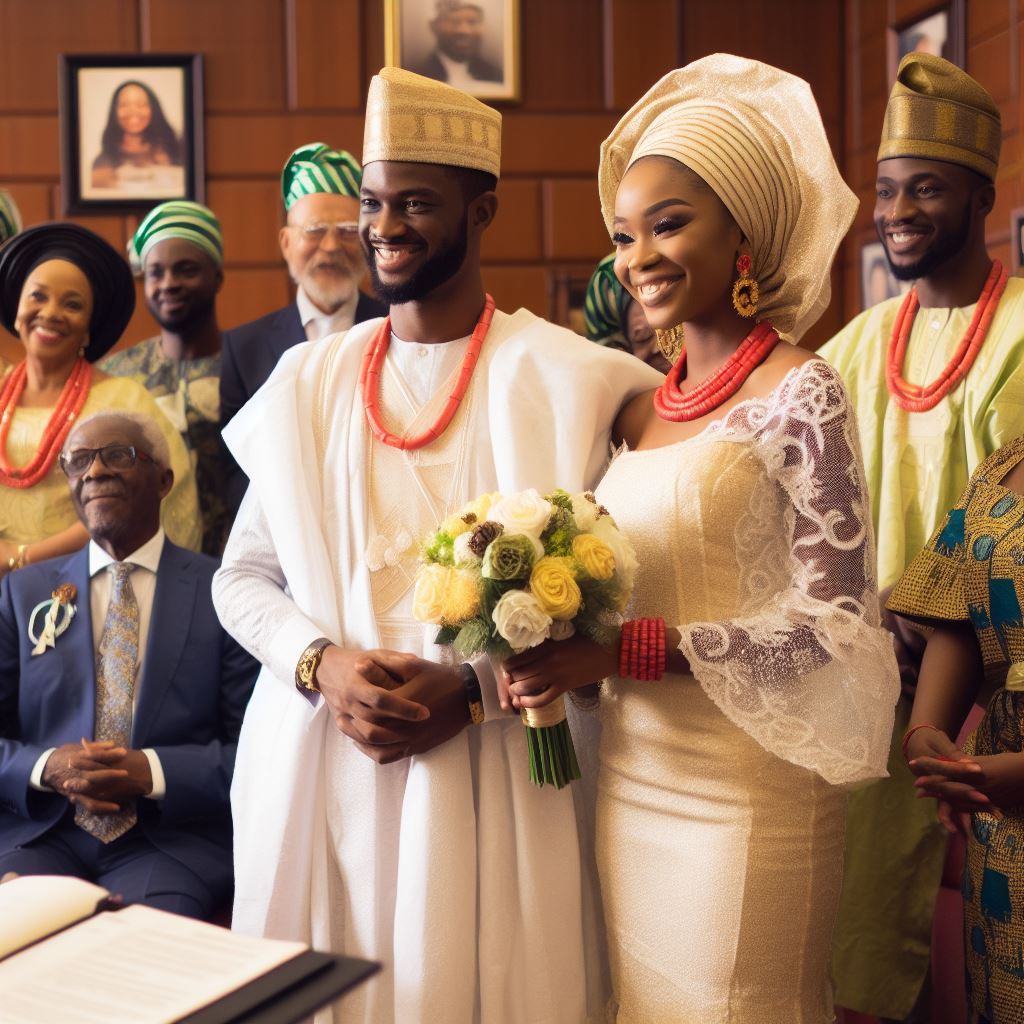Introduction
A. Brief Overview of Marriage in Nigeria
Marriage in Nigeria is a sacred institution, deeply rooted in cultural traditions and societal values.
It goes beyond the union of two individuals; it’s a fusion of families and a significant life event.
Marriage ceremonies in Nigeria are colorful and vibrant, reflecting the country’s rich diversity.
B. Importance of Religion in Nigerian Culture
Religion is a cornerstone of Nigerian culture, with diverse faiths, including Christianity, Islam, and indigenous beliefs, coexisting harmoniously.
It shapes every aspect of life, including marriage.
Religious values are woven into the fabric of Nigerian society, influencing social norms and individual behavior.
C. Thesis Statement: Religion Plays a Significant Role in Shaping Marriage Views in Nigeria
Religion’s influence on marriage views is profound.
It affects the choice of a life partner, wedding customs, and even marital roles and responsibilities.
This section delves into the multifaceted role of religion in shaping marriage views in Nigeria, highlighting its impact on both traditional and modern practices.
Historical Context of Religion in Nigeria
A. Introduction to Major Religions in Nigeria
In Nigeria, religion plays a central role in shaping marriage views.
The nation is marked by religious diversity, primarily influenced by three major religions: Christianity, Islam, and Traditional African religions.
- Christianity:
- Introduced through missionary activities during the colonial period.
- Embraced by various ethnic groups and regions, impacting marriage customs.
- Introduced through missionary activities during the colonial period.
- Islam:
- Brought by traders and clerics, particularly in northern Nigeria.
- Has a profound influence on marriage practices in Islamic communities.
- Brought by traders and clerics, particularly in northern Nigeria.
- Traditional African Religions:
- Indigenous beliefs and practices, deeply rooted in the country’s culture.
- Still influential in many communities, particularly in rural areas.
- Indigenous beliefs and practices, deeply rooted in the country’s culture.
B. Influence of Colonization on Religious Practices
The colonization of Nigeria significantly impacted religious practices.
Christian missionaries and colonial powers played a pivotal role in introducing Christianity.
This influence brought about a shift in marriage views, emphasizing monogamy, Christian ceremonies, and legal formalities.
C. Adoption of Religious Practices into Nigerian Culture
Religious practices in Nigeria are deeply intertwined with cultural traditions.
Christianity and Islam have influenced marital customs, leading to more formalized unions, church or mosque weddings, and adherence to religious guidelines in marriages.
D. Emergence of Religious Diversity in Nigeria
Nigeria’s religious landscape has become increasingly diverse over time.
Interfaith marriages between Christians and Muslims are common, leading to a blend of traditions and beliefs.
This diversity enriches the nation’s cultural tapestry and shapes various perspectives on marriage.
In fact, Nigeria’s rich religious diversity, influenced by Christianity, Islam, and Traditional African religions, has played a profound role in shaping marriage views.
The historical context of colonization, the adoption of religious practices into cultural norms, and the emergence of religious diversity have all left a significant imprint on the institution of marriage in Nigeria.
Read: A Dive into Nigeria’s Royal Wedding Traditions & Wishes
Religious Beliefs About Marriage
A. Christianity
- Christian Teachings on Marriage: In Nigeria, Christian beliefs significantly influence views on marriage. The Bible emphasizes the sanctity of marriage, as exemplified in Genesis 2:24.
- Emphasis on Love, Companionship, and Fidelity: Christian marriages underscore love, companionship, and fidelity. Ephesians 5:25-33 encourages husbands to love their wives as Christ loves the church.
- Importance of Marriage as a Sacred Union: Christians view marriage as a sacred covenant. The exchange of vows signifies a commitment before God and the congregation.
B. Islam
- Islamic Teachings on Marriage: Islam plays a vital role in shaping marital values. The Quran permits polygamy but encourages monogamy. Marriage is seen as half of faith.
- Role of Gender Roles and Responsibilities: Islamic marriages emphasize distinct gender roles and responsibilities. Husbands are providers, while wives manage the household.
- Significance of Family and Community in Marriage: In Islam, marriage involves not just two individuals but two families. The community’s involvement strengthens social bonds and support.
C. Traditional African Religions
- Influence of Ancestral Beliefs on Marital Customs: Traditional African religions incorporate ancestral beliefs. Ancestors are consulted through rituals to seek their blessings and guidance.
- Role of Traditional Rituals and Ceremonies in Marriages: Traditional African marriages are marked by elaborate rituals, symbolizing the transition from singlehood to marital life.
- Connection Between Spirituality and Marital Success: Spirituality is intertwined with marital success in traditional African religions. A harmonious union is believed to appease ancestors and spirits.
In a nutshell, religion deeply influences how Nigerians perceive and practice marriage.
Christians cherish love, companionship, and fidelity within the sacred covenant of marriage.
In Islam, gender roles, and community involvement are pivotal. Traditional African religions bring ancestral beliefs and spirituality into the marital journey, emphasizing the significance of rituals and ceremonies.
These religious underpinnings continue to shape marital views, providing a rich tapestry of customs and beliefs in Nigeria.
Read: Marriage Wishes Etiquette: Do’s and Don’ts in Nigeria
Learn More: Signs Your Nigerian Partner is Ready for a Marriage Proposal
Influence of Religion on Marital Practices and Customs
A. Pre-marital Rituals and Ceremonies
- Engagement Processes: In Nigeria, religion profoundly impacts engagement rituals. Various faiths, such as Islam and Christianity, have specific guidelines for the engagement period.
- Dowry and Bride Price Customs: Religious doctrines influence the practice of dowry and bride price. Different faiths may have varying requirements or recommendations.
- Traditional Religious Rites Before Marriage: Some ethnic groups in Nigeria integrate traditional religious rites into the pre-marital phase, guided by their beliefs.
B. Wedding Ceremonies and Traditions
- Role of Religious Leaders: Religious leaders play a pivotal role in officiating weddings, ensuring that the ceremony adheres to the faith’s principles.
- Influence of Religious Customs: The choice of wedding attire and decorations often reflects religious customs and values, with different faiths having distinct preferences.
- Rituals and Prayers: Wedding ceremonies are enriched by religious rituals and prayers that align with the couple’s faith, enhancing the spiritual significance of the union.
C. Post-Marital Practices and Expectations
- Defining Gender Roles: Religion significantly shapes gender roles within marriage. Each faith imparts distinct expectations and responsibilities on husbands and wives.
- Marital Responsibilities: Religious doctrines guide marital responsibilities, emphasizing love, respect, and mutual support based on the teachings of the faith.
- Family Planning and Childbirth: Family planning and childbirth practices often hinge on religious beliefs, with some faiths promoting specific approaches and values.
In Nigeria, where diverse religious beliefs coexist, these influences on marital customs and practices underscore the importance of respecting and preserving one’s faith while embracing the unity of marriage.
Regardless of your religious affiliation, these customs enrich the tapestry of Nigerian matrimony, making each wedding a unique blend of tradition and spirituality.
Read: Top Yoruba and Igbo Marriage Anniversary Messages to Share
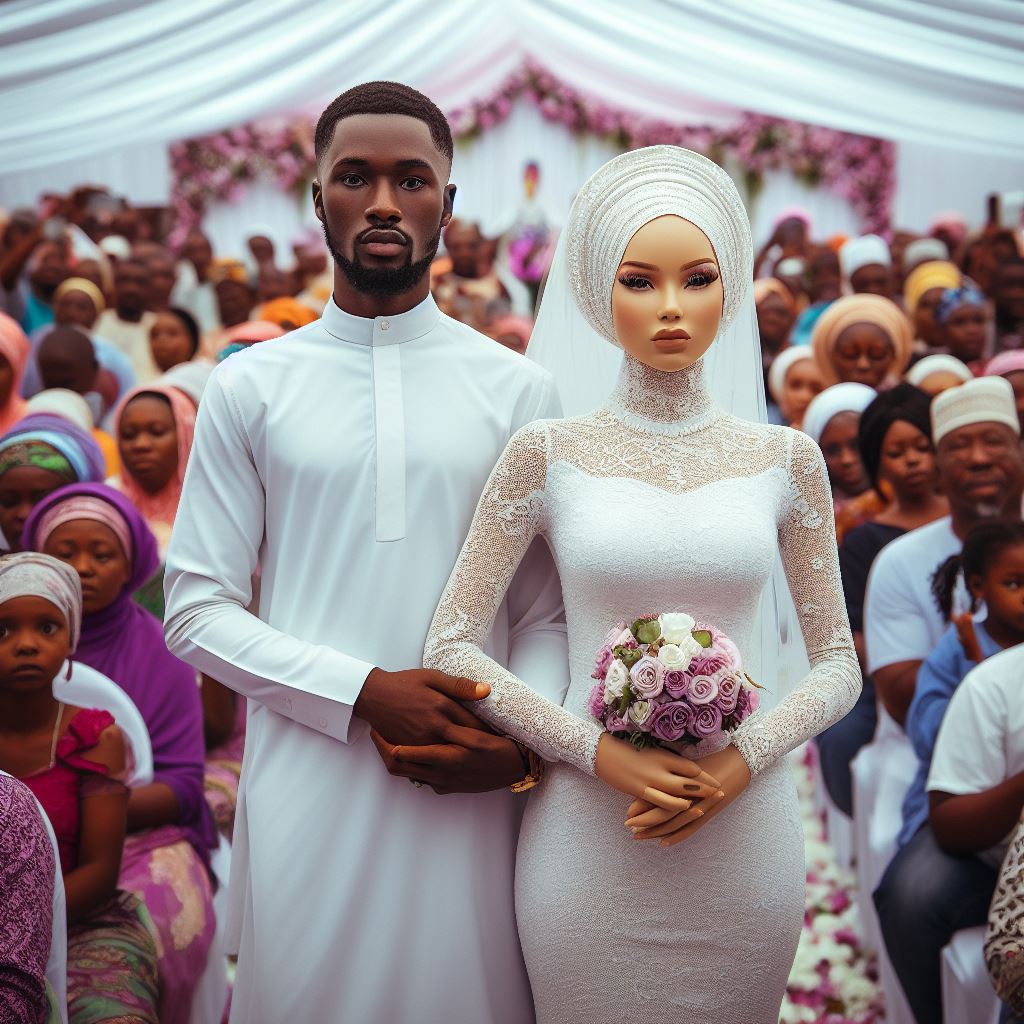
Challenges and Controversies Related to Religion in Nigerian Marriages
When it comes to Nigerian marriages, religion plays a significant role in shaping various aspects of the institution.
However, there are several challenges and controversies that arise in relation to the influence of religion on marital views.
A. Interfaith marriages and religious differences
1. Cultural clashes and family resistance
In Nigeria, interfaith marriages often face opposition and resistance from families and communities.
Cultural clashes arise due to differing religious beliefs, practices, and traditions.
Families may resist such marriages due to fear of losing their cultural identity.
2. Religious conversion and compromises
Interfaith couples may face pressure to convert to their partner’s religion, leading to religious compromises.
This can create conflicts within the marriage as individuals may struggle to maintain their personal beliefs while adapting to new religious practices.
3. Impact on children and extended family relationships
Interfaith marriages often raise concerns about the religious upbringing of children.
Deciding on a specific religious practice or teaching becomes a challenge.
Additionally, extended family relationships may become strained, as relatives may view the marriage as a threat to their religious values and traditions.
B. Influence of religious leaders on marital decisions
1. Forceful opinions and interference
Religious leaders wield considerable influence in Nigerian society, including the realm of marriage.
However, some leaders may impose their opinions forcefully, resulting in interference in couples’ decisions and the imposition of religious doctrines that may not align with the couple’s wishes.
2. Conflicting advice and interpretations
Different religious leaders may offer conflicting advice and interpretations on marital matters, leading to confusion and conflicts within couples.
This situation can undermine couples’ decision-making processes and leave them unsure about the right course of action to take.
3. Power dynamics and possibilities of manipulation
Religious leaders’ authority and influence can create power dynamics within marriages.
This can lead to possibilities of manipulation, where leaders exploit their positions to control couples’ decisions and actions, ultimately affecting the overall dynamics of the relationship.
Religion-based discrimination and social stigma
1. Stigmatization of certain religious practices in marriages
In Nigeria, certain religious practices may be stigmatized within the context of marriages.
This can include practices that are perceived as unconventional or contradictory to societal norms, leading to social judgment and discrimination faced by couples who engage in such practices.
2. Exclusion and marginalization of minority religions
Minority religions often face exclusion and marginalization within Nigerian society, including in the context of marriages.
Couples belonging to these minority religions may encounter prejudice, lack of acceptance, and limited support from their families and communities.
3. Struggles faced by couples with different religious backgrounds
Couples with different religious backgrounds in Nigeria face unique challenges.
They may struggle to navigate their differing beliefs, practices, and religious obligations.
This can lead to conflicts and difficulties in finding common ground and maintaining harmony within the marriage.
In short, religion in Nigeria influences marriage views; however, it also brings forth challenges and controversies.
Interfaith marriages face cultural clashes, resistance from families, and the need for compromises.
Religious leaders can exert forceful opinions, provide conflicting advice, and manipulate couples.
Furthermore, religion-based discrimination leads to stigmatization, exclusion of minority religions, and struggles for couples with different religious backgrounds.
Read: The Influence of Nollywood on Nigerian Wedding Wishes
Conclusion
A. Recap of the Role of Religion in Shaping Marriage Views in Nigeria
Religion profoundly influences marital beliefs, guiding choices, rituals, and family dynamics in Nigeria.
B. Importance of Understanding and Respecting Religious Diversity in Marital Relationships
Respect for diverse beliefs fosters harmony, promoting tolerance, acceptance, and love within marital unions.
C. Encouragement for Open Dialogues and Mutual Understanding in Interfaith Marriages
Open conversations enhance understanding, bridging religious gaps and strengthening bonds in interfaith marriages.
D. Final Thoughts on the Future of Religion and Marriage in Nigeria
Embracing diversity will define the future, shaping marriages based on love, understanding, and shared values, transcending religious boundaries.

